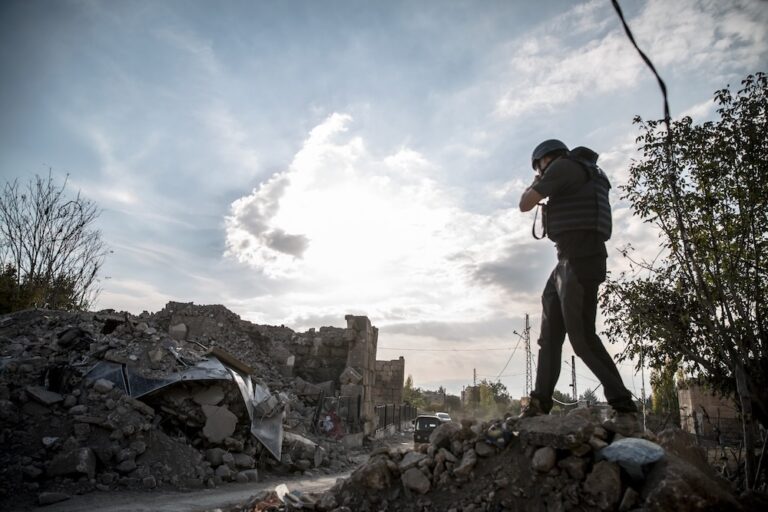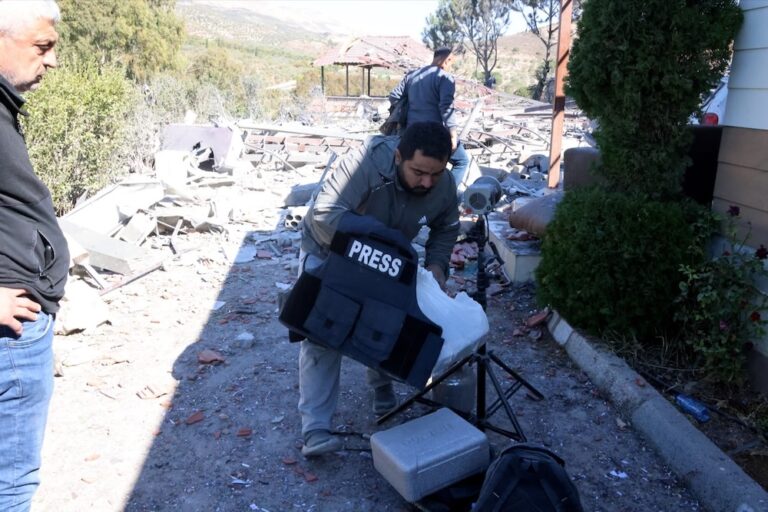On 17 September 1996, the Lebanese government gave broadcasting licences to four privately-owned television and eleven radio stations, rejecting the applications of 47 other broadcasters, who will have to refrain from broadcasting political programs as of 18 September and cease operating completely after 30 November. Minister of Information Farid Mekari, however, said the 47 were […]
On 17 September 1996, the Lebanese government gave broadcasting
licences to four privately-owned television and eleven radio
stations, rejecting the applications of 47 other broadcasters, who
will have to refrain from broadcasting political programs as of 18
September and cease operating completely after 30 November.
Minister of Information Farid Mekari, however, said the 47 were
free until the end of November to submit new applications to
comply with application guidelines.
The four television stations granted licences are the Lebanese
Broadcasting Company International (LBCI), which belonged to the
Christian militia of the Lebanese Forces; Future Television (FTV),
owned by Prime Minister Rafic Hariri; Murr Television (MTV), owned
by Michel Murr, brother of the Interior Minister; and the National
Broadcasting Network (NBN), an initiative to be spearheaded by the
President of Parliament, Nabih Berri. Two new radio stations —
one owned by FTV, the other by MTV — are to be spawned. Mekari
said these two, along with the LBCI-owned station La voix du Liban
libre, will be the only radio stations allowed to broadcast news
and political programming. Permission for Hezbollah radio to
broadcast news on anti-Israeli attacks was revoked on 18
September.
According to RSF, it is the second attempt by Lebanese authorities
to stifle the freedom of radio and television broadcasters. In
1994, Lebanese television and radio stations had ceased
broadcasting news programs under a government ban on “political”
programming.
RSF says that, even though it understands the government’s desire
to reorganize the broadcasting sector and establish guidelines for
it, it is concerned at what appears to be Lebanese authorities’
desire to restrict broadcasters by issuing licences only to pro-
Syrian stations or to broadcasters owned by politicians close to
Damascus. RSF points out that all the licenced stations belong to
Lebanese leaders or count among their major shareholders
individuals close to Damascus. The media outlets whose
applications were rejected are known for their hostility towards
or opposition to authorities in power. As such, the three oldest
and most important radio stations in the country — the Voix du
Liban (which belongs to the Maronite Christian Party and is an
opponent of Hariri), the Communist Party-owned Voix du Peuple and
the Voix de la Patrie — were not authorized to continue
broadcasting.
Recommended Action
Send appeals to the Lebanese Prime Minister:
several are not yet in existence, while many existing radio and
television stations were not granted licences
media also be authorized to broadcast, and that all media outlets
be allowed to carry political and news programs
Appeals To
Prime Minister Rafic Hariri
Serail
Rue des arts et metiers
Sanayeh
Beirut, Lebanon
Fax: +961 1 86 20 01
Farid Mekari
Minister of Information
Ministry of Information
Beirut, Lebanon
Please copy appeals to RSF and to:
the Lebanese diplomatic representative in your country
(in Canada)
Embassy of the Lebanese Republic
640 Lyon Street
Ottawa, Ontario
K1S 3Z5 Canada
Fax: +1 613 232 1609
Your diplomatic representative to Lebanon
(Canada)
Canadian Embassy
P.O. Box 60163
Jal-el-Dib, Lebanon
Fax: +961 1 521 167
Please copy appeals to the originator if possible.


